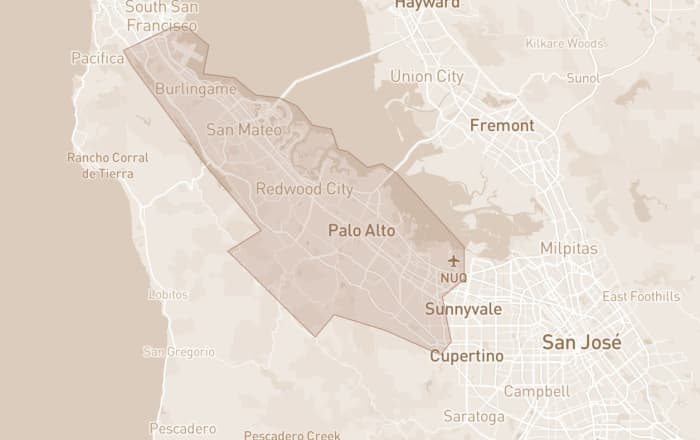This post was originally published on this site
An on-demand ride-hailing startup with a business model decidedly different from Uber Technologies Inc. and Lyft Inc. is taking them on in their backyard.
Alto launched service in Silicon Valley on Tuesday, making it the sixth U.S. market for the company that decided at its inception to differentiate itself by hiring drivers as employees instead of adopting the gig-economy model of treating them as independent contractors. That business model abides by California law, which Uber
UBER,
and Lyft
LYFT,
have tried to subvert with a ballot initiative that was voted into law, but which the companies are now fighting to uphold after a judge declared it unconstitutional.
Will Coleman, chief executive and co-founder of Dallas-based Alto, said in an interview with MarketWatch that the startup will start off mostly in Palo Alto, Redwood City, San Mateo and Burlingame with about 50 vehicles, for which it is hiring about 100 drivers. The company, which was founded in 2018, also operates fleets in its hometown of Dallas-Fort Worth, plus Houston, Miami, Los Angeles and Washington, D.C.
“We have big plans for expansion for the rest of the year,” Coleman said, adding that he expects Alto’s service to expand to other parts of Silicon Valley as demand grows. He wouldn’t disclose how many more and which markets Alto is entering in the near future, but said he expects to “at least quadruple” the size of his company’s total headcount of 1,200 this year.

Alto is launching its ride-hailing service in a select area in Silicon Valley.
Courtesy of Alto
Alto’s entry into Silicon Valley comes at a time when Uber, Lyft and other gig companies are battling to continue to avoid treating their drivers and delivery workers as employees. In California, the gig companies are appealing a court decision that nullifies Proposition 22, the industry-backed law that voters approved in 2020, which allows the multibillion-dollar companies to be exempted from a state law that would’ve required them to classify their drivers as employees.
See: The app-based economy could see key changes in 2022
Alto’s expansion also coincides with a rebound in rides demand. Ride-hailing leader Uber raised its first-quarter outlook Monday to reflect “healthy and growing demand across all use cases.”
In the markets where Alto is operating now, Coleman said consumer demand for rides has risen since pandemic-related restrictions have eased. He said airport traffic has recovered and leisure trips have increased.
Alto’s data shows that “Tuesday is the new Thursday,” he said, attributing that change to more people working from home. “We’re seeing leisure occasions across the board that are more spread out and more robust throughout the week.”
Alto is considered a transportation network company and is regulated like Uber and Lyft. The startup offers on-demand rides through an app, with discounts for subscribers to its service, which promises pickup times within 10 to 15 minutes. Riders are picked up by uniformed drivers in branded vehicles — they usually launch the service with Buick Enclave SUVs, Coleman said — that the venture-backed company leases from its partners.
Alto describes its ride prices as comparable to that of an Uber XL, Uber’s SUV offering, though another way it is different is it does not use surge pricing. The startup says it offers a safer and more reliable experience than Uber or Lyft because its drivers are vetted, trained and treated better.
“There’s a common misconception that being an employee necessitates that you work full-time,” Coleman said. “We’re looking for ways to have flexible and compelling opportunities while still providing some of the security and consistency that employment offers.”
Alto has full-time and part-time drivers. All of its 500-plus drivers receive some benefits either way, Coleman said, with part-time drivers eligible for up to 80% in subsidies for a modified healthcare plan. Wages vary by market, but in California, he said drivers’ average wages range from $19 to $21 an hour.
One former driver for Alto in the Washington, D.C., area gave the startup a mixed review. Aaron Coach of Baltimore told MarketWatch he drove for the service for about a month before he quit because his 50-mile commute to the driver hub in Virginia wasn’t worth his $15-an-hour wage, though he said Alto also offered higher hourly wages during peak hours on Fridays and Saturdays.
“With them trying to be an upscale company, they pay far too little,” he said. “You’re essentially a concierge.”
Still, Coach added that Alto has “great potential” if it gets past the “disorganization” of being a new company, raises wages and hires good drivers. He has returned to working as an Uber driver full-time, with eventual plans to do essentially what Alto does: start a limousine service.



